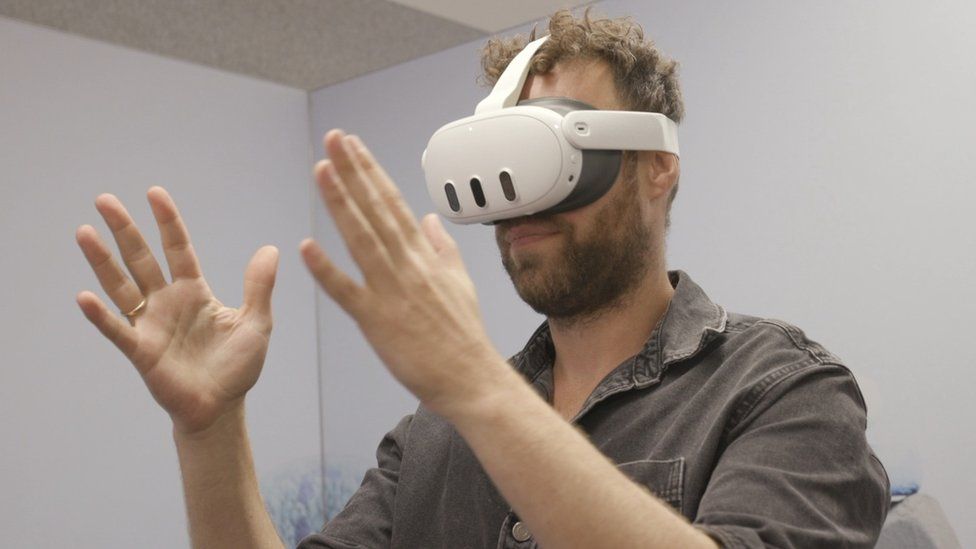-

-
-
Loading

Loading

When I first tried virtual reality (VR), I made the mistake of starting with an intense rollercoaster game that made me feel sick and disoriented. Even after taking off the headset, the feeling of nausea lingered for hours. I've realized that I can handle gentler games, but the nausea still creeps in, leaving me lightheaded with a headache. This issue of motion sickness in VR affects many people, and it is crucial to find a solution if Mark Zuckerberg wants to create a metaverse that people can spend significant time in. Last week, I had the opportunity to try Meta's latest VR headset, the Quest 3, which is soon to be released. Unlike its predecessor, the Quest 2, this new headset allows you to see the real world through the cameras in full color. This means that games can be played virtually, but they are set in your physical surroundings. It's like having a digital character sitting on your coffee table. The Quest 3 is the first affordable mixed reality headset, priced at $499 (£411). As I put on the headset and prepared myself for potential sickness, I started with a tech showcase called First Encounters. It began in the room I was in, and as I shot projectiles, the walls started crumbling, revealing a virtual world. To my surprise, I didn't feel sick at all. I could still see the people in the room and move around confidently. The same experience held true when I tried the mixed reality game version of Stranger Things. After my demonstration, I spoke with Chris Cox, the chief product officer at Meta, and asked him about his favorite feature of the new headset. He highlighted how mixed reality drastically improves comfort and acknowledges that switching between reality and VR can be challenging. However, if the solution to VR sickness is to avoid playing full VR, is that really a fix? Zuckerberg believes that better graphics and reduced latency can help reduce motion sickness. He hopes that as the headsets improve, fewer people will report problems. But part of feeling ill in VR is simply due to the disconnect between what our eyes see and what our bodies feel. I also tried a completely virtual reality boxing game, and while the graphics were impressive, I still experienced an unwanted dizziness that reminded me VR is not enjoyable for everyone. Motion sickness varies from person to person, and while some can play VR for hours without any issues, I am not one of them. Mixed reality is still in its early stages with limited game options, but perhaps it could be a solution for individuals like me who like the concept of virtual gaming but struggle with the physical discomfort it brings.